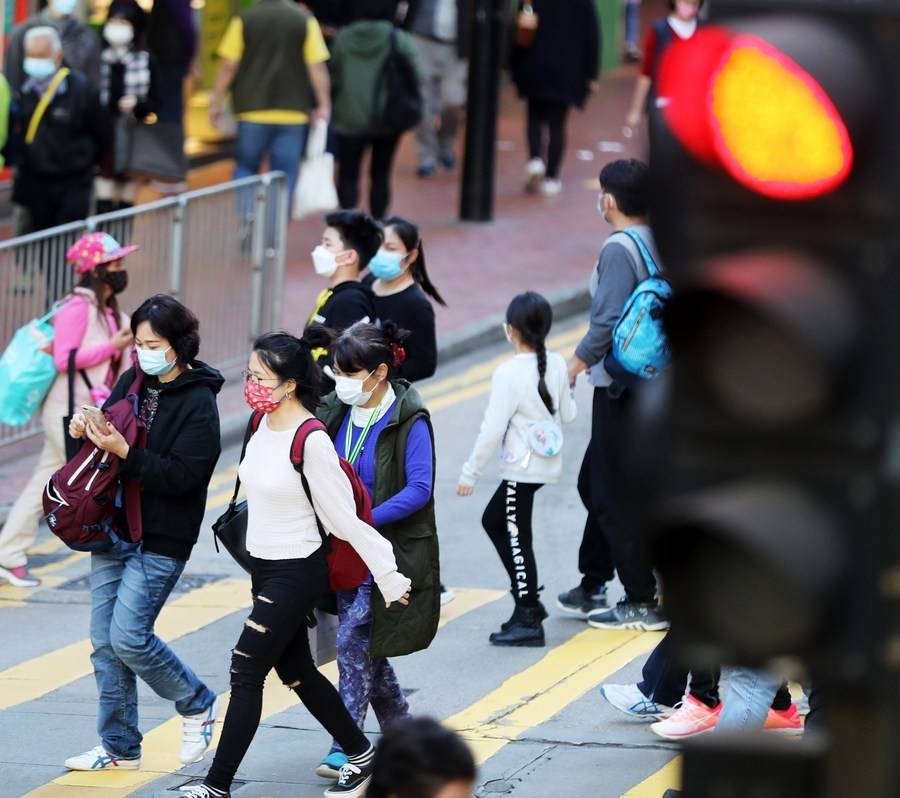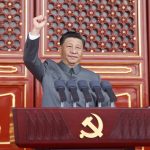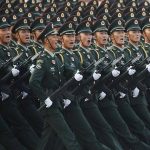At least a fifth of the island’s population is thinking of or currently in the process of emigrating….reports Asian Lite News
A survey has China worried about growing disillusionment among the residents of Hong Kong and the possibility of the island nation staring at a population exodus eventually exceeding a million at the end of the next five years.
Political issues and the gradual erosion of personal freedoms and human rights are as much the primary reasons for the exodus as lack of living space and reducing trust in the local government. At least a fifth of the island’s population is thinking of or currently in the process of emigrating.
The Hong Kong Institute of Asia-Pacific Studies at the Chinese University of Hong Kong conducted a telephone survey to get their views on emigration from the island following the imposition of the draconian national security law. Nearly 44 per cent of the respondents said they would emigrate the moment they get the chance to. Thirty-five per cent of them have already begun preparations to that end. Most of them would prefer going to three places – the United Kingdom, Australia and Taiwan.
What are the factors pushing them towards leaving Hong Kong? The top four factors are listed by the survey:
“Dissatisfaction with the HK Special Administrative Region government, the chief executive, senior officials or government policies” (27.3 per cent), “too much political dispute/social cleavage” (23.6 per cent), “liberty, human rights or freedom of information is weakening” (19.8 per cent), “no democracy in Hong Kong” (17.6 per cent).

The survey also lists the top four factors that attract them to the countries where they want to emigrate: “More liberty and better conditions for human rights” (23.3 per cent), “ample living space” (19.4 per cent), “political systems more democratic” (18.70 per cent) and “conditions of immigration for Hongkongers are being relaxed” (15.2 per cent).”
Reuters has reported that Beijing’s move to impose a national security law has “prompted Britain to offer refuge to almost 3 million Hong Kong residents eligible for the British National Overseas (BNO) passport from January 31”.
The UK has offered residents of Hong Kong who hold the British National Overseas (BNO) citizenship and their close relatives the opportunity to live in the UK for two periods of five years each. They would be eligible to apply for citizenship at the end of their six year of residence in the country.
According to East Asia Forum that focuses on economics, politics and public policy in East Asia and the Pacific, “the UK government estimates that 5.4 million Hong Kong residents, or 72 per cent of Hong Kong’s estimated residential population, will be eligible to move to the United Kingdom”.
It quotes the British government as forecasting that “the new visa may attract more than 300,000 people, with around 140,000 arriving in the first year”. In the first three months of 2021, the United Kingdom received 34.000 applications, it is learnt.
Canada has also offered a new immigration pathway for the people of Hong Kong under which “any Hong Kong resident who has graduated from a Canadian university or holds equivalent foreign credentials obtained in the past five years can apply to work in Canada for up to three years”. The initiative was launched this February and has attracted 6,000 applications so far. The Forum suggests that the final migration figure after 2021 could be the millions. “A back-of-the-envelope calculation using UK government forecasts and destination preferences (which indicate that a quarter of potential migrants would choose to move to the United Kingdom) suggests that total emigration from Hong Kong may reach 1.2 million people, or 16 per cent of the population.”

In reality, the pace of emigration is quite slow and could be spread over a period of five years. The lack of urgency is attributed to the Covid-19 pandemic and the issues with foreign travel and lockdown restrictions. British Migration Observatory has said the third reason is “a more expensive and restrictive post-Brexit system brought in following the end of freedom of movement at the start of the year”.
Radio Television Hong Kong, the public broadcasting service in the island, said recently that “Canada is a second home for many Hong Kong residents after their families moved to the Vancouver and Toronto areas ahead of the British handover of its former colony to China in 1997 and after obtaining Canadian citizenship, many returned to Hong Kong, which is now home to about 300,000 Canadians – one of the largest Canadian communities abroad”. It is expected that the Canadians may shift back to that country from Hong Kong shortly and that they are already moving billions of dollars across the globe to Canada.
ALSO READ: Does China’s BRI have a future in Taliban-ruled Afghanistan?
The economic impact of such mass emigration may be immediately felt on the Hong Kong economy. Reuters quotes a Bank of American report that the island residents “leaving the city to move to Britain could trigger capital outflows of HK$280 billion ($36 billion) this year from the Asian financial centre”.
The report estimated that “if those leaving sold a Hong Kong apartment for HK$7.53 million ($971,224.41) – the average price in the city’s Kowloon district – and withdrew their pension savings, then the capital outflow in 2021 could reach HK$280.2 billion”.

In total, over five years, the bank said, the capital outflow from Hong Kong could reach HK$588 billion ($75.8 billion).
Economists in Hong Kong are worried that the exodus can most visibly impact on “labour supply in the city and domestic demand for goods and services”. However, the shortage scenario as well as demographic changes will depend on which segment of the population is moving out. For the time being, it is assumed that “families with young children are more likely to exit” and, in an indication of things to come, “more than 19,000 students from primary and secondary schools, or three per cent of the total student population, dropped out in 2020-2021, twice that of the previous year”. Their parents are said to be “in mid-career” and “tend to be well-educated’. Among those who have completed their education in Hong Kong, a survey claims that ‘a quarter of university-educated people under the age of 35 were planning to leave the city’. Their absence will be felt most as it would mean “a loss of valuable human resources, which are vital for Hong Kong’s knowledge-driven, service-based economy”.
The Chinese government, aware of the data, is determined to look ahead and insists that Hong Kong will remain a key financial hub, attracting finance professionals from all over the world. It is confident of moving out Chinese youth from the mainland to the island as one of the measures.













